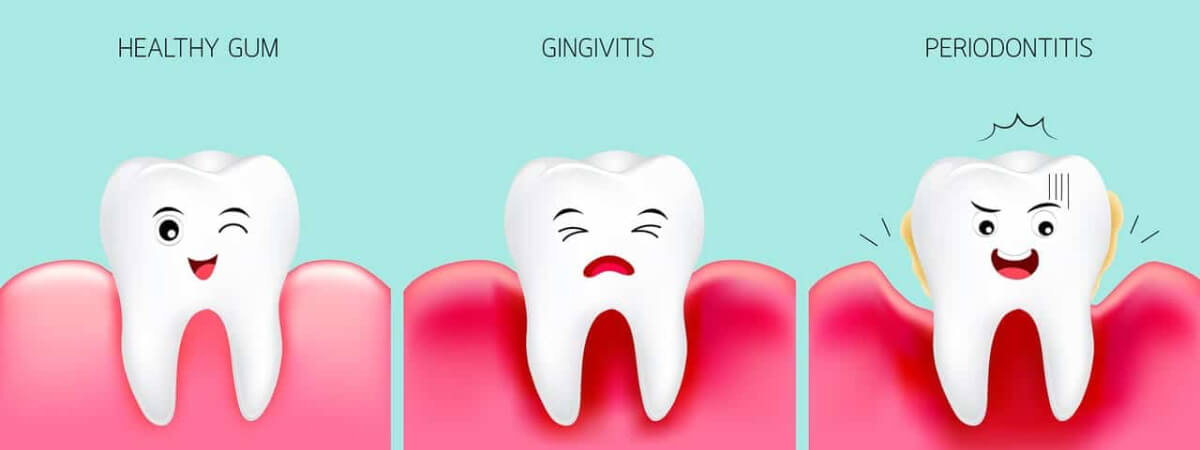Jawbone Loss and Deterioration
Reasons for Jawbone Loss and Deterioration

The following are the most common causes for jawbone deterioration and loss that may require a bone grafting procedure:
Tooth Extractions:

When an adult tooth is removed and not replaced, jawbone deterioration may occur. Natural teeth are embedded in the jawbone, and stimulate the jawbone through activities such as chewing and biting. When teeth are missing, the alveolar bone, or the portion of the jawbone that anchors the teeth in the mouth, no longer receives the necessary stimulation, and begins to break down, or resorb. The body no longer uses or “needs” the jawbone, so it deteriorates and goes away.
The rate the bone deteriorates, as well as the amount of bone loss that occurs, varies greatly among individuals. However, most lost occurs within the first eighteen months following the extraction, and continues throughout life.
Periodontal Disease:

Periodontal diseases are ongoing infections of the gums that gradually destroy the support of your natural teeth. Periodontal disease affects one or more of the periodontal tissues: alveolar bone, periodontal ligament, cementum, or gingiva. While there are many diseases which affect the tooth-supporting structures, plaque-induced inflammatory lesions make up the majority of periodontal issues, and are divided into two categories: gingivitis and periodontitis. While gingivitis, the less serious of the diseases, may never progress into periodontitis, it always precedes periodontitis.
Dental plaque is the primary cause of gingivitis in genetically-susceptible individuals. Plaque is a sticky colorless film, composed primarily of food particles and various types of bacteria, which adhere to your teeth at and below the gum line. Plaque constantly forms on your teeth, even minutes after cleaning. Bacteria found in plaque produce toxins or poisons that irritate the gums. Gums may become inflamed, red, swollen, and bleed easily. If this irritation is prolonged, the gums separate from the teeth causing pockets (spaces) to form. If daily brushing and flossing is neglected, plaque can also harden into a rough, porous substance known as calculus (or tartar). This can occur both above and below the gum line.
Periodontitis is affected by bacteria that adhere to the tooth’s surface, along with an overly aggressive immune response to these bacteria. If gingivitis progresses into periodontitis, the supporting gum tissue and bone that holds teeth in place deteriorates. The progressive loss of this bone, the alveolar, can lead to loosening and subsequent loss of teeth.
Dentures/Bridgework:

Unanchored dentures are placed on top of the gum line, and therefore do not provide any direct stimulation to the underlying alveolar bone. Over time, the lack of stimulation causes the bone to resorb and deteriorate. Because this type of denture relies on the bone to hold them in place, people often experience loosening of their dentures and problems eating and speaking. Eventually, bone loss may become so severe that dentures cannot be held in place even with strong adhesives, and a new set may be required. Proper denture care, repair, and refitting are essential to maintaining oral health.
Some dentures are supported by anchors, which do help adequately stimulate, and therefore preserve bone.
With bridgework, the teeth on either side of the appliance provide sufficient stimulation to the bone, but the portion of the bridge that spans the gap where the teeth are missing receives no direct stimulation. Bone loss can occur in this area.
By completing a bone graft procedure, Dr. Cho is now able to restore bone function and growth, thereby halting the effects of poor denture care.
Trauma :

When a tooth is knocked out or broken to the extent that no biting surface is left below the gum line, bone stimulation stops, which results in jaw bone loss. Some common forms of tooth and jaw trauma include: teeth knocked out from injury or accident, jaw fractures, or teeth with a history of trauma that may die and lead to bone loss years after the initial trauma.
A bone grafting procedure would be necessary to reverse the effects of bone deterioration, restoring function and promoting new bone growth in traumatized areas.
Misalignment:

Misalignment issues can create a situation in the mouth where some teeth no longer have an opposing tooth structure. The unopposed tooth can over-erupt, causing deterioration of the underlying bone.
Issues such as TMJ problems, normal wear-and-tear, and lack of treatment can also create abnormal physical forces that interfere with the teeth’s ability to grind and chew properly. Over time, bone deterioration can occur where bone is losing stimulation.
Osteomyelitis:

Osteomyelitis is a type of bacterial infection in the bone and bone marrow of the jaw. The infection leads to inflammation, which can cause a reduction of blood supply to the bone. Treatment for osteomyelitis generally requires antibiotics and removal of the affected bone. A bone graft procedure may then be required to restore bone function and growth lost during removal.
Tumors:

Benign facial tumors, though generally non-threateningly, may grow large and require removal of a portion of the jaw. Malignant mouth tumors almost always spread into the jaw, requiring removal of a section of the jaw. In both cases, reconstructive bone grafting is usually required to help restore function to the jaw. Grafting in patients with malignant tumors may be more challenging because treatment of the cancerous tumor generally requires removal of surrounding soft tissue as well.
Developmental Deformities:
Some conditions or syndromes known as birth defects are characterized by missing portions of the teeth, facial bones, jaw or skull. Dr. Cho may be able to perform a bone graft procedure to restore bone function and growth where it may be absent.
Sinus Deficiencies:
When molars are removed from the upper jaw, air pressure from the air cavity in the maxilla (maxillary sinus), causes resorption of the bone that formerly helped the teeth in place. As a result, the sinuses become enlarged, a condition called hyperneumatized sinus.
This condition usually develops over several years, and may result in insufficient bone for the placement of dental implants. Dr. Cho can perform a procedure called a “sinus lift” that can treat enlarged sinuses.
Top Rated Dentists in Irvine
Trustindex verifies that the original source of the review is Google. I was very impressed with Dr Cho and his staff! Very organized and efficient. Ashleigh is amazing! Totally on top of everything. I had crown lengthening done and the experience was great! No pain at all and Dr Cho walked me through everything so I knew what was happening and what to expect next. Ariel and Dr Cho work great together! They gave me post op instructions verbally and Ashleigh also gave me instructions on paper so I know how to care for the area when I get home. I will definitely refer my friends and family to Dr Cho in the future!Trustindex verifies that the original source of the review is Google. I am so happy with my results after Dr. Cho performed a gum surgery on me to fix my gummy smile. He made the process fast and painless and made sure to explain everything thoroughly to me. I would definitely recommend visiting his office!Trustindex verifies that the original source of the review is Google. As the wife of a retired Dentist, I am fortunately accustomed to excellent dental care. Dr. William Cho and his entire staff exceeded my expectations and exemplify the very best of outstanding periodontal care. Dr. Cho is not only well trained, he strives to care for all his patients with outstanding and diligent skills explaining each step of every periodontal procedure. I recommend Dr. Cho with the highest of accolades possible. Thank you Dr. Cho! Cyndy HamasakiTrustindex verifies that the original source of the review is Google. Dr. Cho was thorough, quick, clear, and direct in his exam and assessment of our daughter, visiting for a possible labial frenectomy. He has earned our full trust. Highly recommended. The front office is efficient as courteous. The entire operation is a caring, effective, and efficient well-oiled medical machine :-). Congrats!Trustindex verifies that the original source of the review is Google. I have been going to Dr. Cho for at least the last 5 years, and I highly recommend him and his practice to everyone I know who's looking for a quality periodontist. After many years of getting the run-around or getting too short "perio quadrant scaling cleanings" from traveling periodontists working with NO oversight from the dental providers they partner with, I finally realized that I needed to find someone with extra expertise and integrity. I feel Dr. Cho has both. I have had regular cleanings, deep cleanings and 1 implant surgery with him. Very happy with his care!Trustindex verifies that the original source of the review is Google. Dr. Cho is a very professional and knowledgeable periodontist. I would highly recommend him to anyone.Trustindex verifies that the original source of the review is Google. Dr. Cho has been with me thru the years. He always is helpful and give great advise as well as referrals. I know I can count on him as I have for over a decade.Trustindex verifies that the original source of the review is Google. Dr. Cho cares about each patient and recommends the right procedure and considers the cost to the patient. His work is thorough and answers all questions asked. He also asks questions to understand why they are visiting his practice and any background before making any recommendation. He made me feel very comfortable and I felt he was the Periodontist for me..Load more

